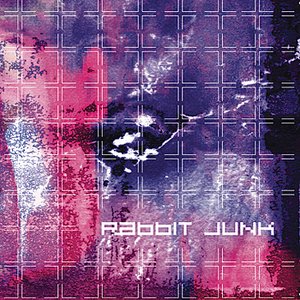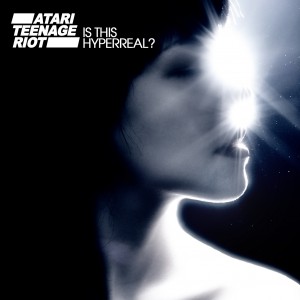Rabbit Junk Rabbit Junk Review
General Information:
Artist: Rabbit Junk
Album: Rabbit Junk
Genre(s): Digital Hardcore
Subgenres(s): N/A
Released: 2004
Length: 51 minutes
Language(s): English
Label(s): Rabbitjunk.com (Original release) / Full Effect Records (Rerelease)
Track List:
01. Orange Laces
02. Plastical
03. Not Owned
04. Washout
05. I Vote Bolshevik Lite
06. Punkass
07. Walking on the Moon (The Police Cover)
08. Fingaprints
09. Inside My House
10. ISO vs Life
11. I Vote Bolshevik Lite (Cyanotic Remix) / You Deserve to Die (Hidden Track)
Rabbit Junk Rabbit Junk Review
Rabbit Junk is the debut album and name of the American digital hardcore solo act created by JP Anderson. Fusing hardcore punk with elements of drum and bass, hip hop and other electronic influences it marks a significant departure from The Shizit, an electronic duo composed of JP Anderson and Brian Shrader between 1999 and 2002.
While they focused on a drum and bass/gabber/hardcore techno fusion with some punk rock influences the three year gap between The Shizit’s last album and Rabbit Junk’s first gives the impression that a musical transformation happened for JP Anderson outside the studio. As such it was never recorded so the links connecting the bands and JP Anderson’s new artistic vision are thin, especially when considering how productive The Shizit were in releasing three albums in their short-lived career. This would have probably been a surprise for longstanding fans even though it should be noted that the high energy performance and aggression has not dissipated.
Right out of the gate the listener is greeted with a heavily distorted guitar that builds with rock drumming and synthesisers before giving way a frenzied combination of drum and bass beats and blown out guitar noise with some synthesisers weaving their way into the mix for a clearer sense of melody. Other songs such as Plastical, Punkass, Fingaprints and ISO Vs Life all contain some elements of hip hop ranging from turntablism, rapped vocals (on ISO Vs Life) and samples of NWA on Punkass to further blur the lines between genres. Unlike most bands Rabbit Junk manage to do this without really stepping into nu metal territory as many rock-orientated bands do when flirting with hip hop. On Fingaprints we hear all of the elements coming together at their best from the looped and distorted vocal frenzies interlaced with turntable scratches right thought to the blown-out guitars and sheer intensity that it results in. The title of the song relates to the lyrics found in the extended mid-song interlude that gives you room to breathe with JD Anderson lamenting that “my hands are black from the matches in my pocket/so far, I’ve only burnt myself.”
Unexpectedly there is a cover of the reggae song Walking on the Moon by The Police, originally released in 1979, which seems like an unusual choice given how it contrasts so much with Rabbit Junk’s aggressive genre mashup. With 25 years between their releases and almost as many genres apart it doesn’t help make sense of the choice initially. Having said this, JP Anderson turns the song into something of his own which works well for the Rabbit Junk sound. Some parts of the cover are virtually unrecognisable from the original, such as the chant accompanied by ambient sound effects at the beginning before using turntables and the bass guitar to give the song momentum. The tempo is a bit faster than the original version so it lacks the same relaxed pace and atmosphere which is then thrown out the window when it turns in to a punk rock song for the chorus.
The rerelease of Rabbit Junk has two songs on the final track, the first being a remix of I Vote Bolshevik Lite by industrial metal band Cyanotic and the second is a hidden song called You Deserve to Die which tagged on the end of the track. It is a live acoustic song with delightfully dark and sarcastic lyrics dealing with a revenge murder which the crowd gleefully sing along to, giving it an unintentionally surreal twist.
Through Rabbit Junk JP Anderson proudly carries the digital hardcore banner while adding his own flair the broad mix without strict regard for genre conventions. This makes the album versatile and uncompromising in a way that most others simply cannot be so for anyone that enjoys music that blurs genre lines then Rabbit Junk should be on their list.
Performers:
JP Anderson: Vocals, guitar, bass, drums, keyboards, programming, song-writing, lyrics
Jennifer “Sum Grrl” Bernert: Backing vocals
External Links:
Rabbit Junk Homepage
Rabbit Junk on Wikipedia
Rabbit Junk (album) on Wikipedia


